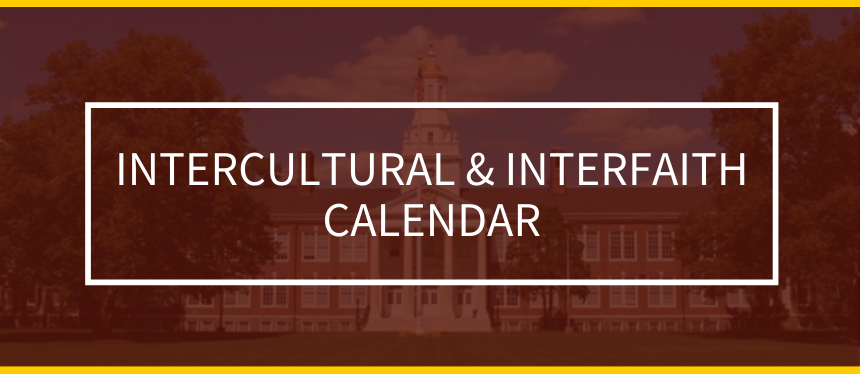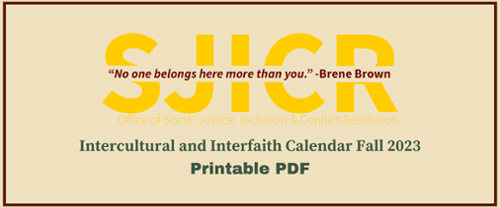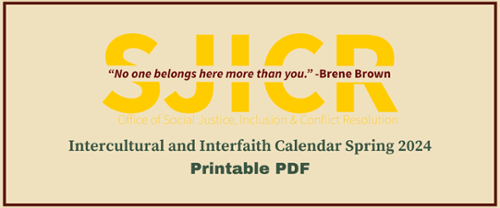Intercultural & Interfaith Calendar
Intercultural & Interfaith Calendar
Office of Social Justice and Belonging
Main Menu
- Office of Social Justice and Belonging
- Meet our Team
- Dr. Harley E. Flack Student Mentoring Program
- Interfaith and Spiritual Alliance
- Gender & Sexuality Center
- Gender Neutral Restrooms
- Preferred Name
- BIPOC Student Support Services
- SJICR Initiatives
- Calendar of Events
- SJB Spaces
- Employment Opportunities
- Resources
- Intercultural & Interfaith Calendar
- Make a Gift


